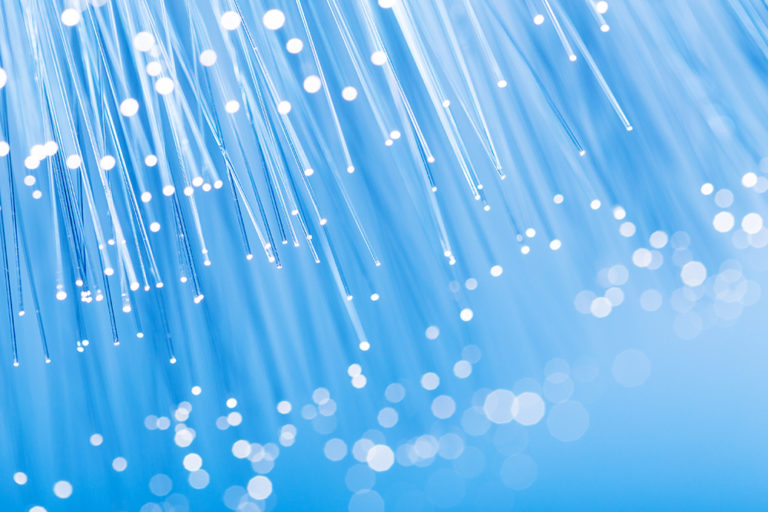In our ultra-connected world, the speed and safety of information dissemination are essential parameters that affect both the private sphere and the lives of economic actors. From now on, our entire lives are connected to the Internet matrix, and, without effective means of communication, any business, whether private or professional, is doomed to failure. With the development of optical fiber, a new milestone has been reached.

Optical fiber offers many advantages over the old copper cabling of networks. This essential element of the great global web has therefore become a major issue in the expansion of the economic fabric. However, if fiber is very significantly more advantageous than the old means of transmission, it is nonetheless subject to the use of quality cables to be effective. Let’s look at all this in detail.
What is optical fiber?
In a world where information plays a crucial role, states and private economic powers have long sought to improve the speed of information dissemination. The old copper wires could no longer support the incessant flow of data that crosses the world every second. The development of optical fiber therefore relied on government and private funding to ultimately appear essential to the life of our digital societies.
Optical fiber uses light pulses to transmit a signal instead of electrical pulses. The advantages of such technology are numerous and we will detail them in the following paragraph, but it is above all the width of the bandwidth and the speed of diffusion that have promoted its development. It was also necessary to have quality cables to protect the fiber as well as a means of control over the measurement of the fibers and the verification of their calibration. This is what a specialized brand like Cersa Mci offers to guarantee an optical fiber without manufacturing defects detected to players of all kinds.
The advantages of optical fiber
Optical fiber is a very efficient technology that has made it possible to optimize a large number of network parameters. The first of these is of course the speed of information dissemination, which is also coupled with less attenuation effect and a greater bandwidth. You therefore benefit from a better internet connection or clearer IP telephony conversations. In addition, fiber has an estimated lifespan of around a hundred years, which is why access providers invest so much in this material.
At the same time, contrary to popular belief, fiber is cheaper than copper with a higher load capacity, which allows more lines to be introduced in the same cable. It is also lighter and more manageable, which will enable it to be used in hard-to-reach places, thus facilitating installation and maintenance operations. However, fiber is also more fragile, hence the importance of protecting it with quality cables.
The importance of having quality cables to optimize optical fiber
Optical fiber is quite fragile and more vulnerable than copper. It does not withstand twisting or bending well, which can cause serious problems in certain harsh environments. Hence, it is important to be able to rely on quality cables to protect it. Cerca Mci experts have, therefore, designed tools to measure the quality of the fiber and identify any manufacturing defects that may appear during the process.
It is important to know that while fiber is fragile, the cables that protect it are much more resistant, provided they meet the minimum technical requirements. Relying on fiber to develop and optimize your network is essential, but not under any conditions. Quality cables are essential to ensure optimal operation, otherwise, your digital space colonization business will likely be reduced to nothing.


















Comments 1